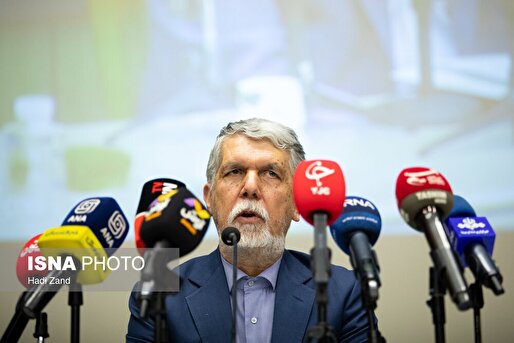How Trump's attack on the Muslim Brotherhood is a gift to extremists
How Trump's attack on the Muslim Brotherhood is a gift to extremists

The executive order signed by US President Donald Trump on Monday, directing his national security team to explore designating certain branches of the Muslim Brotherhood as Foreign Terrorist Organisations (FTOs), represents one of the most consequential - and reckless - policy missteps of his second administration.
If implemented, the measure would undermine core US interests, destabilise the Middle East, and empower the very actors Washington claims to be combatting.
The order instructs Secretary of State Marco Rubio and Treasury Secretary Scott Bessent, in consultation with Attorney General Pam Bondi and Director of National Intelligence Tulsi Gabbard, to report within 30 days on whether Brotherhood chapters in Egypt, Jordan and Lebanon should be classified as FTOs.
To be sure, this is not the first time the idea has surfaced. Over the past decade, several attempts - by Trump’s first administration, and by members of Congress, including Senator Ted Cruz - failed due to the presence of sober professionals inside the US government who understood the fundamental reality: the Muslim Brotherhood, as a movement, does not meet the statutory criteria for designation, and doing so would be a huge policy mistake.
According to US law, an organisation may be designated as an FTO only if it meets three conditions. It must be foreign; it must engage in terrorist activity or terrorism against civilians, or retain the capability and intent to do so; and such activity must threaten the national security of the US or its people.
Two of these three requirements are absent. None of the Egyptian, Jordanian or Lebanese branches of the Brotherhood have been credibly linked to terrorist violence against civilians. Nor do they pose any genuine threat - political, military or economic - to US national security or American citizens.
Ironically, the Brotherhood is often accused by supporters of Arab dictators of being agents and lackeys for Washington.
Reformist movement
In Egypt, the Brotherhood is a century-old reformist movement that has been committed, since the early 1970s, to nonviolent participation after enduring repression under former President Gamal Abdel Nasser.
For decades, it competed in elections, led professional syndicates, and offered social provisions to poor people in Egypt. Crucially, it was a bulwark against violent jihadism in the 1980s and 1990s, diverting thousands of Egyptians away from al-Qaeda and other terrorist groups.
After the 2011 revolution, the Brotherhood won a majority in parliamentary elections, and Mohamed Morsi became Egypt’s first democratically elected president. His removal in the July 2013 coup led by Abdel Fattah al-Sisi - and the subsequent Rabaa massacre, the deadliest in modern Egyptian history - ushered in a decade of unprecedented repression.
Yet despite mass killings, imprisonment and forced exile, the movement’s leadership adhered to nonviolence - to the frustration of some of its own youth.
Today, the Brotherhood is organisationally fragmented, politically marginalised, and has almost no operational presence inside Egypt. Targeting it now is not only unjustified, but meaningless.
If the legal case is weak and flawed, the political motivations behind the designation of the Muslim Brotherhood as a terrorist organisation are unmistakable.
Firstly, the designation represents a triumph for the far-right extremists surrounding Trump - figures such as Sebastian Gorka, Trump’s senior director for counterterrorism, with widely reported ties to ultranationalist and neo-Nazi groups in Europe; and Laura Loomer, a far-right activist known for Islamophobic campaigns across the US. Both have long framed the Brotherhood as part of a global Islamist conspiracy, and lobbied aggressively for its designation.
Secondly, Arab authoritarian regimes have lobbied Washington for years to criminalise the Brotherhood, which remains their most formidable social and political rival. Egypt, Saudi Arabia and the United Arab Emirates - architects of the counterrevolution against the Arab Spring - see in Trump’s decision an opportunity to crush what is left of organised political opposition in the region. The timing, just days after Saudi Crown Prince Mohammed bin Salman’s visit to the White House, is hardly coincidental.
To classify such a movement as an international terrorist threat is not only analytically incoherent, but strategically self-defeating
Thirdly, Israel views political Islam as an existential threat due to its widespread popular appeal in Arab societies, and its rejection of Israeli policies in the occupied territories. A US terrorist designation would serve Israeli interests by weakening one of its most vocal ideological adversaries. Several reports from pro-Israel think-tanks have urged the Trump administration to designate certain branches of the Muslim Brotherhood as FTOs.
In addition, American pro-Israel lobbying groups have escalated efforts to link the Brotherhood to US-based Muslim charitable and advocacy organisations, particularly those mobilising against Israel’s genocide in Gaza.
Several of these groups have issued reports encouraging federal and state governments to target Islamic civic organisations under the guise of combatting extremism. Texas Governor Greg Abbott’s decision to designate both the Brotherhood and the Council on American-Islamic Relations as terrorist entities in his state is an ominous example of what could follow nationally.
Far-reaching consequences
Far from advancing US security interests, designating the Brotherhood as an FTO would produce far-reaching, terrible consequences.
It would place the US in confrontation with the most socially embedded Islamic movement in the Arab and Muslim world. The Brotherhood is not a mere religious or political organisation; it is an idea with millions of sympathisers across the Middle East and beyond.
Such a move would weaken efforts to counter real terrorist organisations, such as al-Qaeda and the Islamic State. By undermining moderate Islamist groups that have historically rejected violence, the US would inadvertently strengthen the appeal of more extremist alternatives. The designation would become a self-fulfilling prophecy.
It also risks radicalising some disillusioned youth. A blanket US terrorist designation would validate extremist narratives claiming that peaceful activism is futile - especially as these youth watch Washington embrace figures like Syrian President Ahmad al-Sharaa, the former leader of Hayat Tahrir al-Sham, who once had a $10m bounty on his head before being welcomed at the White House. Extremist groups thrive when peaceful activism is criminalised.
An FTO designation would deepen mistrust within American Muslim communities, especially if their civic and charitable organisations are targeted under false pretences. This would deepen alienation and increase political polarisation, particularly in swing states, such as Michigan and Pennsylvania.
Finally, such a move could destabilise relations with Qatar and Turkey, two critical US partners that host prominent exiled Brotherhood leaders.
The greatest paradox is that the Brotherhood today is at its weakest point in decades - politically fractured, organisationally debilitated, and socially constrained by repression across the region. To classify such a movement as an international terrorist threat is not only analytically incoherent, but strategically self-defeating.
Trump’s pursuit of this designation will not weaken extremists, but empower them. It will not make Americans safer, but it will make the US less secure. And it will not bring stability to the Middle East, but rather accelerate its fragmentation.
In short, the decision is one of the most misguided and strategically costly steps Washington could take - one that threatens to damage US interests for years to come.
The views expressed in this article belong to the author and do not necessarily reflect the editorial policy of Middle East Eye.












